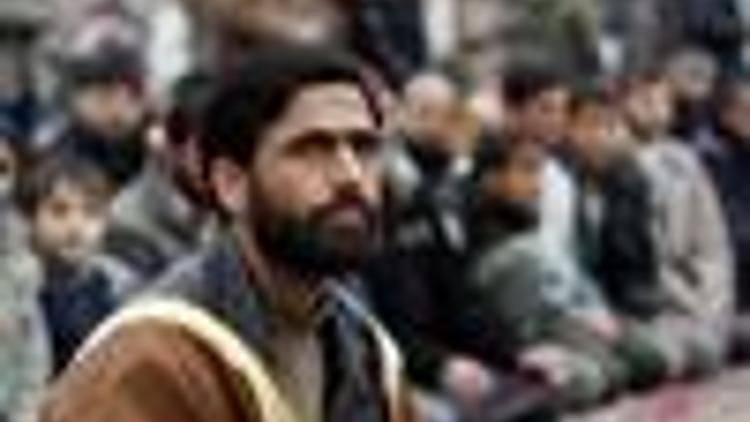Hamas says back in control of Gaza Strip, U.N. schools reopen
Güncelleme Tarihi:

Hamas men on Friday delivered an envelope with five crisp $100 bills to a veiled woman whose house was damaged during Israel’s invasion of Gaza, the first of promised relief payments by the Islamist group.
Since a truce took hold this week, ending Israel’s three-week onslaught, Gaza’s Hamas rulers have declared victory and gone out of their way to show they are in control. �
They have pledged $52 million of the group’s funds to help repair lives, the money divvied up by category. The veiled woman received initial help after her two-story home in the northern town of Beit Lahiya was destroyed.
Hamas, which is believed to be funded by donations from the Muslim world and Iran, said the emergency relief would include $1,300 for a death in the family, $650 for an injury, $5,200 for a destroyed house and $2,600 for a damaged house, AP reported.
More than 4,000 houses were destroyed and about 20,000 damaged, according to independent estimates.
"We are in control and we are the winner," Hamas legislator Mushir al-Masri declared this week, after attending the funeral of four Hamas gunmen.
But Israeli strikes destroyed all of Hamas security compounds and most government buildings. Its top two leaders, strongman Mahmoud Zahar and Gaza Prime Minister Ismail Haniyeh, have not yet appeared in public.
Israel claims to have killed more than 700 Hamas fighters, while the militants say they lost about 280 armed men, the vast majority members of the police force killed in surprise bombings on the first day of the war.
But beyond the losses, Hamas is wrestling with a fateful choice - whether to keep fighting and drive Gaza deeper into poverty and suffering or moderate in exchange for open borders and a measure of stability.
Gaza had buckled under a tight border closure by Israel and Egypt for 19 months, suffering increasing shortages, and the war only heightened the misery.
Hamas would need huge sums to fund reconstruction - some $2 billion according to first estimates - but the international community for now refuses to funnel the money directly to the militants.
Yet Hamas has rebuffed proposals that it set up a unity government with its moderate West Bank rivals, led by Palestinian President Mahmoud Abbas. It is also cool to demands that Abbas troops or foreign border monitors be deployed to prevent weapons smuggling into Gaza.
Israel and Egypt, which have kept Gaza’s borders closed since Hamas seized the territory by force in June 2007, say they will not open the gates unless Hamas relents.
Before the war, Hamas was able to soften the pain of the blockade because weapons, cash and commercial goods were coming in through hundreds of tunnels under the Gaza-Egypt border. Israel says the shipments included explosives and rockets Hamas has been firing at southern Israel.
Israel bombed many tunnels during the war, though reporters have seen smugglers resume operating in some and rebuild others.
U.N. SCHOOLS REOPEN
Around 200 U.N.-run schools in Gaza opened their doors Saturday for the first time since a ceasefire halted Israel’s largest-ever assault on the Hamas-ruled territory.
Some 200,000 children attend schools run by the U.N. refugee agency, which operates 221 schools in the impoverished territory where more than 1,330 people, including 437 children, were killed.
Many of the schools had been used as shelters for some of the 100,000 people displaced during the conflict, and at least three were hit by Israeli fire, prompting a wave of international criticism.
In the deadliest bombing more than 40 people were killed when an Israeli shell struck a crowd of people sheltering in a U.N. school in Gaza’s Jabaliya refugee camp on January 6.
Israel claimed it had been fired upon by militants near the building.
Christopher Gunness, a spokesman for the U.N. Relief and Works Agency (UNRWA), said 53 UN installations had been damaged or destroyed in the conflict, including more than 30 schools.
But he said the agency hoped to restore a "sense of normalcy" by reopening the schools, many of which have not been completely repaired.
"UNRWA’s commitment to restoring a sense of normalcy for the next generation in Gaza is a test of our humanity and we are determined to rise to the challenge," Gunness told AFP.
Most of the 1.5 million residents of Gaza were already refugees dependent on international aid to survive.
Israel and Hamas have observed their own ceasefires since last Sunday and Israeli troops completed their pullout on Wednesday.
U.N. chief Ban Ki-moon has called for those responsible for bombing U.N. compounds and buildings to be held accountable and accused Israel of using "excessive force."

